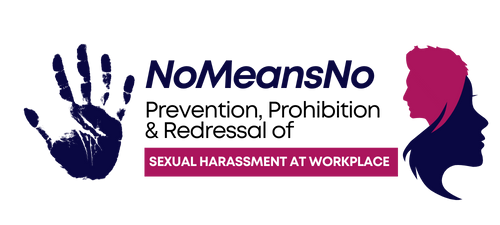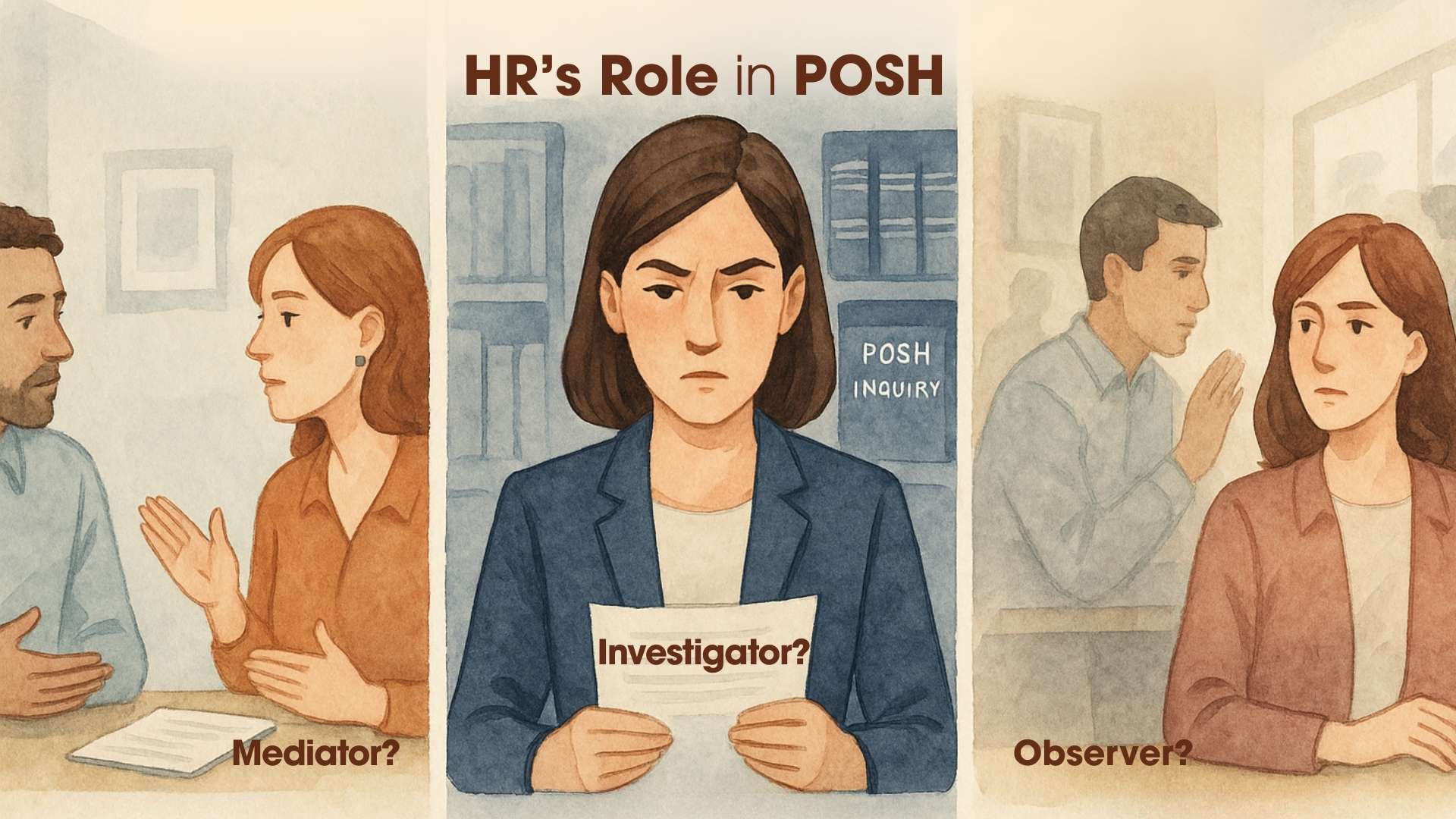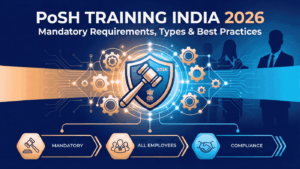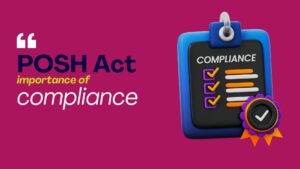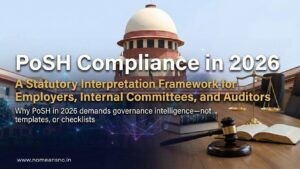Role of HR in POSH: Mediator, Investigator, or Silent Observer?
When Sneha joined a top IT company in Bangalore, she was thrilled with the work, the campus, and the culture. A few months into it, she started evading a specific colleague who was making inappropriate comments, “just jokes,” he’d explain. One day, she decided to go speak to HR. What followed shocked her more than the harassment itself, HR did not know what to do.
Sneha’s experience is not an isolated one.
Across industries, HR’s role in POSH in the workplace continues to be a subject of confusion and debate. Are they meant to be with the complainant? Should they be investigating? Or should they back off completely once a complaint is made?
Let’s unpack this together.
Understanding HR’s Role in POSH: The Legal Framework
The POSH Act, 2013, puts the onus of ensuring a safe workplace firmly on the employer. Although the Internal Committee (IC) is the committee that makes inquiries into grievances, HR tends to be the initial contact point for an aggrieved employee. However, legally, HR is not the investigator, the IC is.
All the same, HR’s role in POSH isn’t a passive one either. Consider HR as the bridge, linking policy and practice, people and processes.
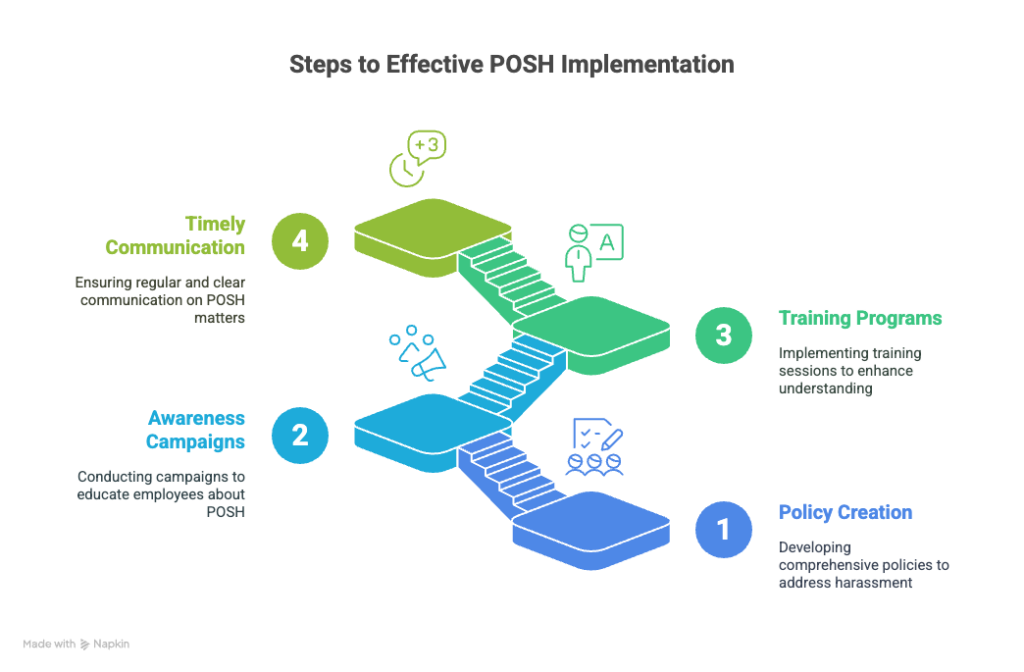
The Teacher Hat of HR in POSH
Let’s take it back to a training session in a mid-sized bank in Mumbai. Ritu, the HR manager, began her POSH session with an easy question:
“What does sexual harassment look like?”
Silence in the room said a lot.
Ritu had learned over the years that the majority of employees are not even sure that staring, foul language, or suggestive WhatsApp messages are forms of harassment. So, it became Ritu’s mission to make sure that everyone, from executives to interns, understood what is enshrined in the POSH Act.
Takeaway? HR’s role in POSH is the key to preventive measures: policy creation, awareness campaigns, training programs, and timely communication.
HR in The First Responder Role
Picture this: Arjun, a team lead, enters the HR cabin, clearly agitated. He does not want to “file a complaint,” but he tells the HR that his female colleague is uneasy with another male colleague.
And then there’s HR, as first responder. They’re there to listen without judging, keep confidential, and assist in the way forward. They can counsel the concerned parties or assist the victim in making a formal complaint against the IC, if they want to.
But here’s where it gets slippery: HR shouldn’t investigate or guarantee results. That’s what the IC should do.
So HR has to balance on that tightrope supportive but objective; present but not dominating.
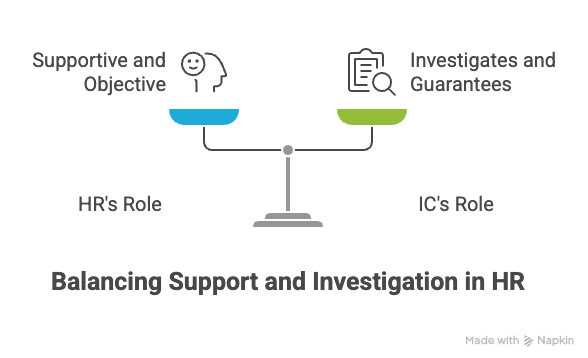
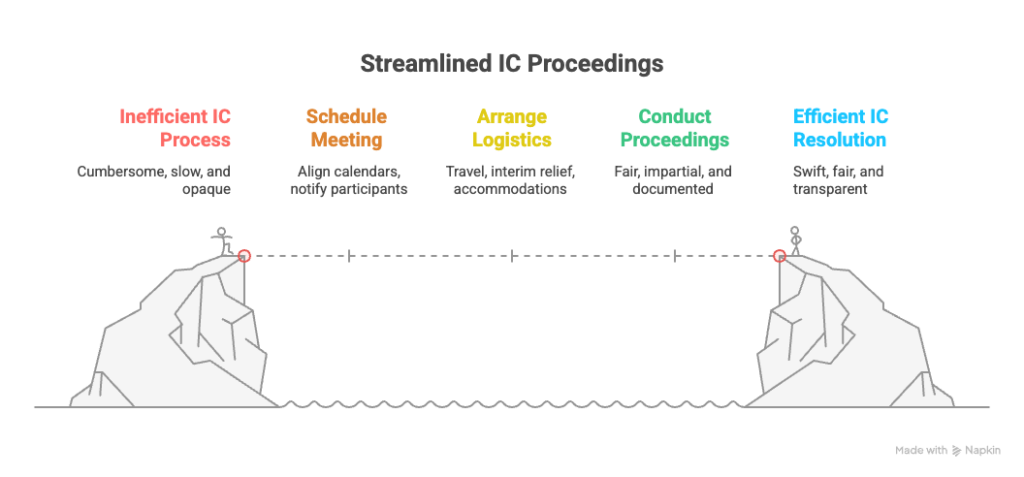
Facilitator Role of HR in POSH
Once a complaint has been lodged, the IC takes charge. Here, HR recedes into the background, but not entirely.
Consider them the operation arm:
- Booking IC meeting schedules.
- Giving both sides notices and follow-ups.
- Arranging travel for IC members (if outside).
- Timely closure of proceedings.
- Arranging interim relief if required (such as change of reporting manager or workstation).
Key point: If the HR representative is a part of the IC, he or she has to reverse roles exercising impartiality and adhering to due process.
HR as a Policy Gatekeeper
What happens after a case is settled?
This is where the systemic solutions need to be addressed by HR. Perhaps there is a trend emerging in complaints that the same department or manager keeps repeating. HR’s role in POSH is to review this and advise that action be taken whether more training, restructuring, or even disciplinary proceedings.
In a representative case from a big Gurgaon-based FMCG company, a repeat offender was warned off twice. On the third complaint, the IC brought it to the attention of HR for systemic intervention. HR implemented anonymous feedback mechanisms and redesigned onboarding sessions to incorporate consent and workplace conduct.
That’s proactive HR in action.
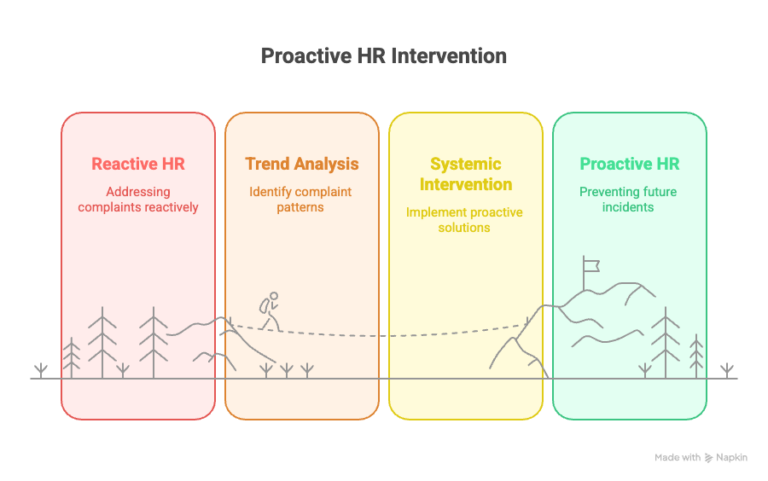
The Mistakes HR Must Avoid:
- Being a Silent Observer: Doing nothing until a complaint reaches them officially is the fastest way to lose employee trust.
- Becoming the Judge: HR can’t determine whether a person is guilty or innocent—that’s what the IC is for.
- Forgetting Confidentiality: “I heard from HR…” must never be a sentence in an organisation.
- Overreliance on Legal Jargon: Policies should be people-friendly, not policy-compliant.
Let’s Talk, as an Employee, What Should You Expect from HR?
- A clear POSH policy in place.
- Access to the IC details on your intranet or notice boards.
- Mandatory annual training or orientation on POSH.
- A non-judgmental ear if you ever approach them.
If you don’t see these in your organisation, maybe it’s time to speak up or suggest that HR revisits their approach. HR’s role in POSH is quintessential to employee and client experience for an organization.
So…Mediator, Investigator, or Silent Observer?
In truth, none of these labels fit completely.
PoSH Train The Trainer Workshop
The HR professional is most accurately defined as a mindful enabler one who facilitates, empowers, and supports without trespassing. Their true power is to build a culture in which complaints are exceptional not because individuals are fearful of speaking out, but because respectful behavior is the expectation. HR’s role in POSH can make or break organizational culture and thereby the future of an organization.
#NoMeansNo
